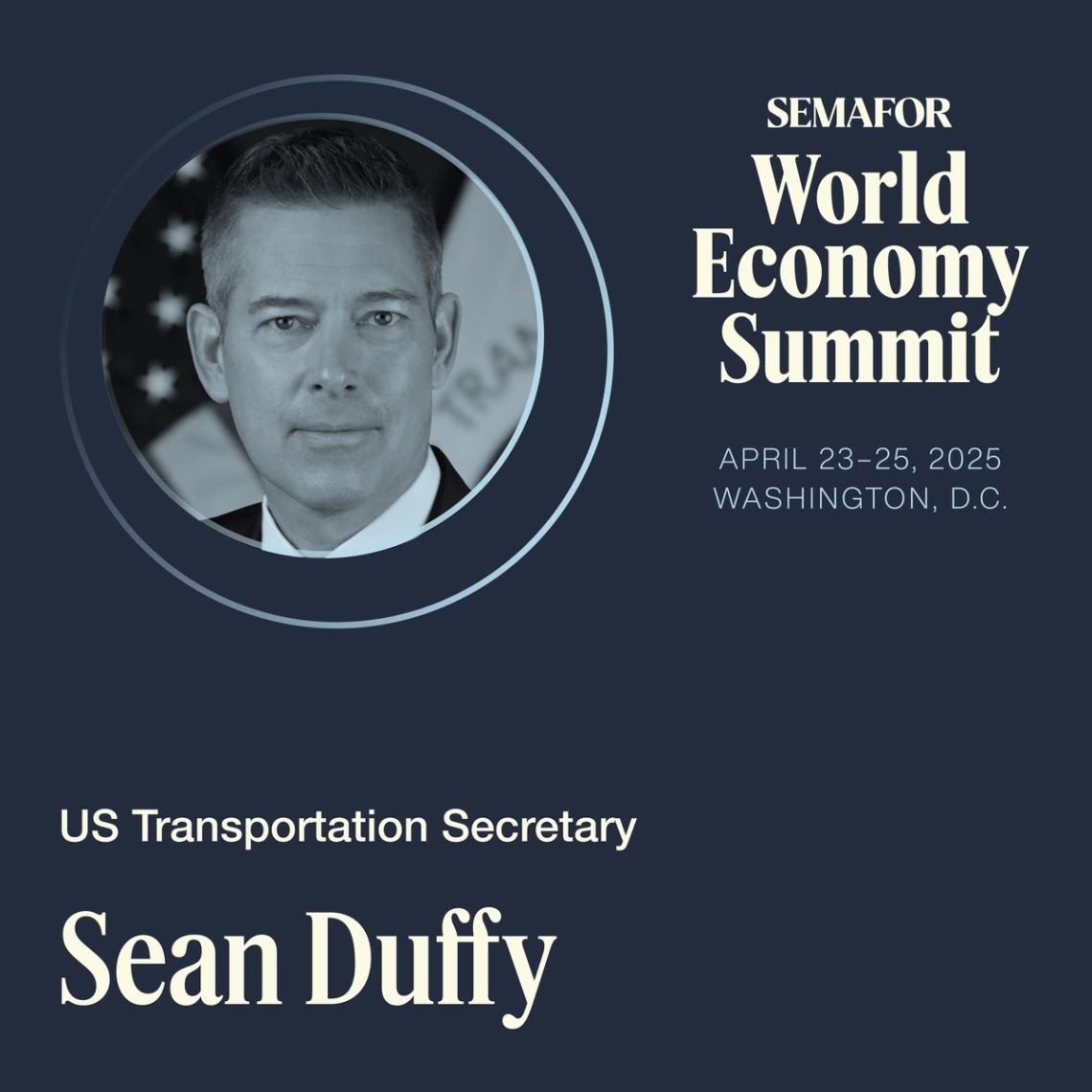 US Transportation Secretary Sean Duffy will join top global leaders at Semafor’s 2025 World Economy Summit, taking place April 23-25, 2025, in Washington DC. As the first major gathering since the new US administration took office, the summit will feature on-the-record discussions with 100+ CEOs. Bringing together leaders from both the public and private sectors — including congressional leaders and global finance ministers — the three-day summit will explore the forces shaping the global economy and geopolitics. Across twelve sessions, it will foster transformative, news-making conversations on how the world’s decision-makers are tackling economic growth in increasingly uncertain times. April 23-25 | Washington, DC | Learn More |